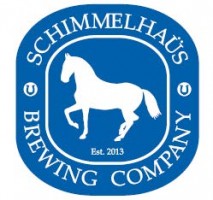Hops
|
Amount
|
Variety
|
Cost
|
Type
|
AA
|
Use
|
Time
|
IBU
|
Bill %
|
|
11 oz |
Target11 oz Target Hops |
|
Pellet |
11.5 |
Boil
|
60 min |
240.91 |
34.4% |
|
7.50 oz |
Challenger7.5 oz Challenger Hops |
|
Pellet |
8.5 |
Boil
|
3 min |
15.1 |
23.4% |
|
8.50 oz |
Northdown8.5 oz Northdown Hops |
|
Pellet |
8.6 |
Boil
|
3 min |
17.31 |
26.6% |
|
5 oz |
East Kent Goldings5 oz East Kent Goldings Hops |
|
Pellet |
5 |
Boil
|
3 min |
5.92 |
15.6% |
|
32 oz
/ $ 0.00
|
Mash Guidelines
|
Amount
|
Description
|
Type
|
Start Temp
|
Target Temp
|
Time
|
|
25.5 qt |
Mash In - Add 25.5 qts of 159.1 (F) |
Infusion |
-- |
148 °F |
60 min |
|
13.1 qt |
Mash Out - Add 13.1 qts Boiling water to mash |
Infusion |
-- |
168 °F |
10 min |
|
4 qt |
Add enough 168 (F) water to collect 11.5 gallons of Wort |
Sparge |
-- |
168 °F |
-- |
Starting Mash Thickness:
1.5 qt/lb
|
Other Ingredients
|
Amount
|
Name
|
Cost
|
Type
|
Use
|
Time
|
|
4 g |
Irish Moss
|
|
Fining |
Boil |
15 min. |
Target Water Profile
Burton on Trent (historic)
Notes
Step by Step
I use Crisp Malting’s British Pale Ale malt (made from Maris Otter) as my base grain, but other malts of a similar nature should work well. Remember, the bulk of the flavor comes from the base grain, so try to get British pale ale malt. The crystal malt should also be of British origin as it makes a substantial difference. I have had great success with Simpsons and Bairds, but feel free to substitute any high quality malt of a similar flavor and color from a different supplier. My hops are in pellet form and come from the UK via Hop Union or Hopsteiner.
Mill the grains and dough-in targeting a mash of around 1.5 quarts of water to 1 pound of grain (a liquor-to-grist ratio of about 3:1 by weight) and a temperature of 148 °F (64 °C). Hold the mash at 148 °F (64 °C) until enzymatic conversion is complete. Infuse the mash with near-boiling water while stirring or with a recirculating mash system raise the temperature to mash out at 168 °F (76 °C). Sparge slowly with 170 °F (77 °C) water, collecting wort until the pre-boil kettle volume is around 5.9 gallons (22.3 L) and the gravity is 1.035.
Add the bittering hops once the wort is boiling, The total wort boil time is 1 hour. During that time add the Irish moss or other kettle finings with 15 minutes left in the boil and add the last hop additions with 3 minutes remaining. Chill the wort to 68 °F (20 °C) and aerate thoroughly. If you have a nice, fresh package of liquid yeast, you can pitch it direct, although making a 1-liter starter is always a good idea.
Ferment around 68 °F (20 °C) until the yeast drops clear. With healthy yeast, fermentation should be complete in a week or less. Allow the lees to settle and the brew to mature without pressure for another two days after fermentation appears finished. Rack to a keg and force carbonate or rack to a bottling bucket, add priming sugar, and bottle. Target a carbonation level of 1–2 volumes depending on your packaging. If you are cask conditioning the beer, add priming sugar, any cask finings (gelatin or isinglass), and possibly dry hop with another ¼–½ oz. (7–14 g) of whole East Kent Goldings. Allow the beer to condition in the cask for several days and serve via a beer engine or by gravity feed at 50–55 °F (10–13 °C).

Last Updated and Sharing

- Public: Yup, Shared
- Last Updated: 2019-04-11 17:50 UTC
For quick copying and pasting to a text based forum or email.
Click the Download as HTML file button below.
Recipe costs can be adjusted by changing the batch size. They won't be saved but will give you an idea of costs if your final yield was different.
|
Cost $ |
Cost % |
| Fermentables |
$ |
|
Steeping Grains
(Extract Only) |
$ |
|
| Hops |
$ |
|
| Yeast |
$ |
|
| Other |
$ |
|
| Cost Per Barrel |
$ 0.00 |
|
| Cost Per Pint |
$ 0.00 |
|
| Total Cost |
$ 0.00 |
|
Discussion about this recipe:
